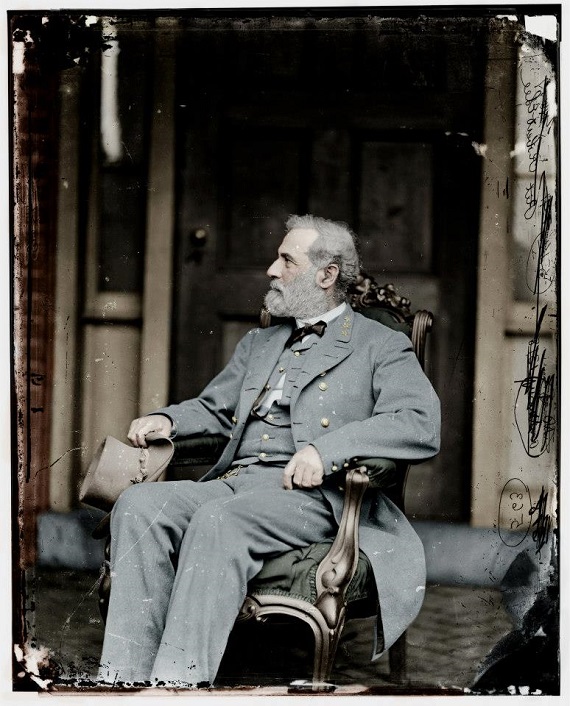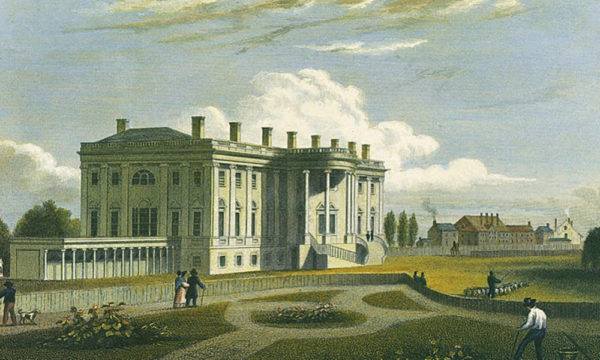Statements that disparage the South and its culture are typical of our times. In fact, they are so typical that the authenticity of their content is rarely questioned. Some of the defamatory statements are straightforward, but if there are potentially delicate situations to be assuaged, obscure language is employed to create duplicitous meanings – thus my title phrase “ a semantic wolf in sheep’s clothing.”
One example is found in a recent statement Washington and Lee President Kenneth Ruscio made in response to demands that the University denounce Robert E. Lee. President Ruscio apparently believed he could pacify both the demonstrators and the University’s long-time Lee supporters with equivocating comments, that included this statement: “Lee was an imperfect individual living in imperfect times.”
Ruscio’s seemingly innocuous comment conforms to the media’s anti-Southern socio/political script. It is another example of the semantic mumbo-jumbo that everyone’s heard for years. The news media has long used such manipulative language to alter the public’s view of Southerners.
Before the 1960s, Southerners and Southern culture were usually portrayed favorably, largely in Hollywood’s stereotypical fashion. But with the 1960s, a governmental restructuring of society began that was publicized as “necessary” to insure equal rights for minorities. But, over this long span of years, the changes demanded of society were so radically expanded, that it became obvious that the goal was more than just equal rights for minorities. In reality, a collectivist society was being surreptitiously implemented under the guise of helping minorities.
But society cannot be transformed without extreme actions to “correct” segments of society that are deemed too individualistic and too traditional – primarily the South. So clever semantics were employed to disparage Southern culture. The success of this process has exceeded all expectations.
As most people rely on the electronic media for their opinions of our society as well as their understanding of American history, they have accepted this false media-created view of the South. They rarely, if ever, probe into the precise meanings of persuasive statements that are foisted on them. So President Ruscio knew that his ambiguously worded denigration of Lee would not be scrutinized. But Ruscio’s statement – “Lee was an imperfect individual living in imperfect times” – must not be blithely accepted.
To claim that General Lee lived in imperfect times implies that other times were not imperfect. We know that Ruscio’s claim is based on a comparison of Lee’s times with the current era. But were the times Robert E. Lee lived in worse than contemporary times?
For “single issue people” – those who believe that slavery is the single defining characteristic of the United States since its founding, the answer is yes. – But those who look more deeply into American history know that each era is defined by more than one variable and so they consider all aspects of an epoch before categorizing it. If one takes a conscientious look at contemporary society, compared with General Lee’s time, one can only conclude that today’s imperfections are far worse than those in Lee’s generation.
Was Robert E. Lee an imperfect individual? Of course he was. We all are, so it doesn’t follow that individuals who differ from Lee are not “imperfect”, which is the semantic implication that Ruscio is making. Actually, Ruscio’s claim that Lee was imperfect places him in very good company. George Washington and Thomas Jefferson are also described as imperfect. Filmmaker Spike Lee not only pins the “imperfect” label on our Founding Fathers but also on our heroes like Francis Marion, who was always held in esteem for his courageous efforts during the Revolutionary War.
Even though Lee, Washington, Jefferson and Marion accomplished many worthwhile things, their entire careers are being judged by one standard only; they lived within the customs of their time and place, including slave labor. Today’s elites, like President Ruscio, use this one criterion as the sole arbiter of all Southern figures of the past. But ethical scholars do not judge famous persons of prior generations using politically sanctioned standards formulated during the current generation. Consequently, if we judge Robert E. Lee’s solely by his distinctive traits, a gentleman, an aristocrat; a courageous military leader, and a person with a high sense of duty and honor, he comes closer to perfection than most American luminaries.







